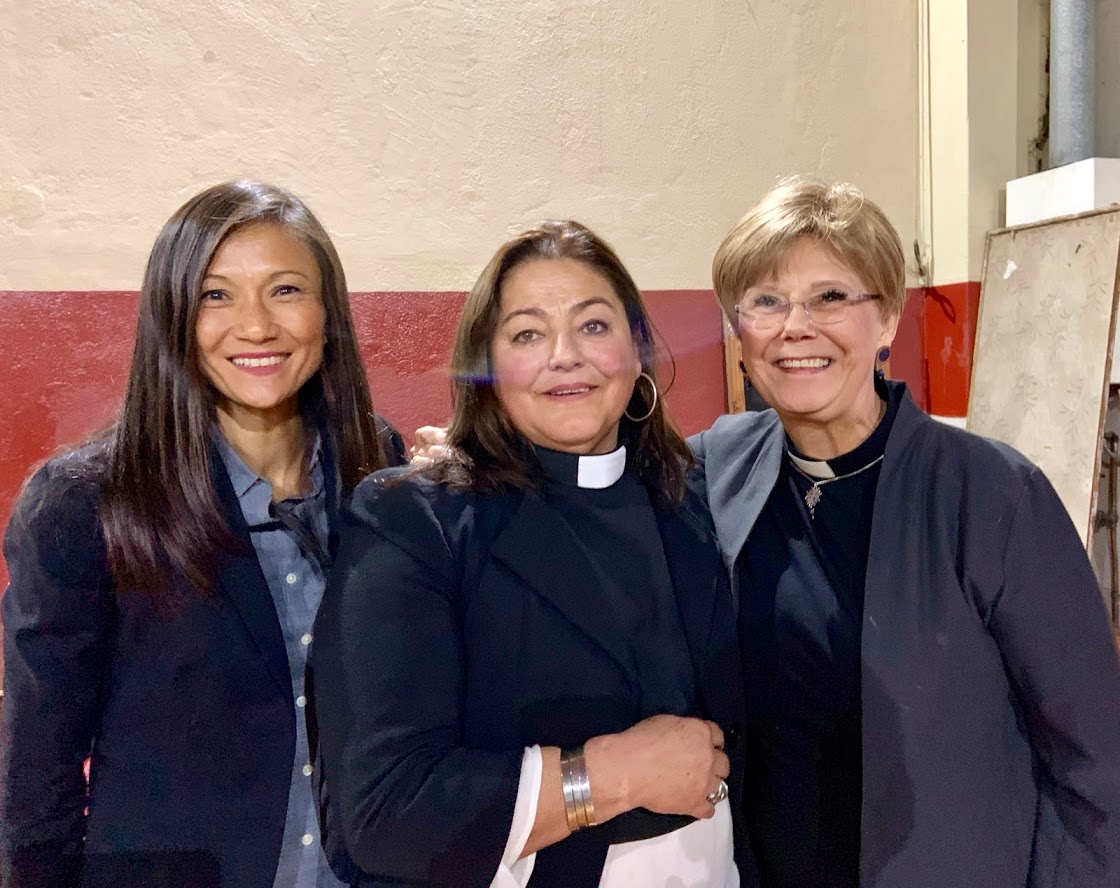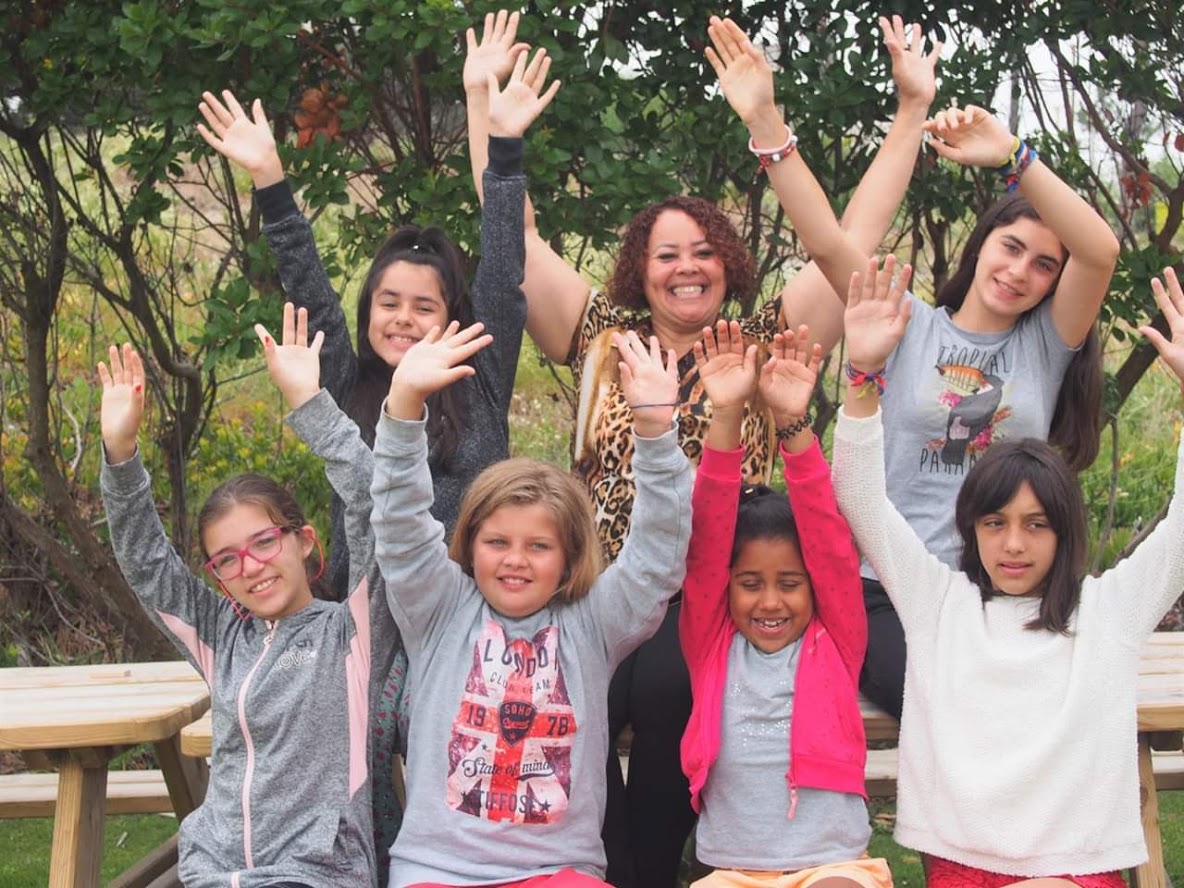A Letter from Dennis and Maribel Smith, based in Argentina, serving as regional liaison for South America
September 2019
Write to Dennis Smith
Write to Maribel Smith
Individuals: Give online to E200481 for Dennis and Maribel Smith’s sending and support
Congregations: Give to D503801 for Dennis and Maribel Smith’s sending and support
Churches are asked to send donations through your congregation’s normal receiving site (this is usually your presbytery)
Today I’m sitting at the dinner table with an old friend, a Presbyterian pastor in Brazil. We’re at a church assembly, and the menu is typical: rice, beans, salad and a main course of beef or chicken.
My colleague has been around mission partnerships for a long time. He pastors a growing congregation with several hundred members in a middle-class, urban area. He keeps track of current thinking in both Brazil and the U.S. on how to make Sunday worship — and all congregational activities — spiritually grounded, intellectually challenging and aesthetically pleasing. He knows his people.
As we sit down, plates full, he remembers that mission partnerships have always been a negotiation. He has visited some congregations in the U.S. that, he has sensed, see their partnership with a Brazilian congregation as a way to restore their sense of vitality. It’s like over the years they have become stuck in their churchly routines; their world has become too small, their vision for ministry clouded.
He affirms that the resources that U.S. churches bring to the partnership table have often been a source of great blessing to Brazilian communities. Scholarships have trained a new generation of local church leaders. Water systems have improved community health. Schools have opened new horizons for their youth.
But sometimes, he remembers, U.S. churches have imposed their will on Brazilian partners, telling them what they think they need and — with the particular omniscience that comes with privilege — how to solve their problems. And sometimes, he confesses, Brazilian church leaders have sought out such partnerships, using them to pursue their personal agendas, with only limited regard for the needs of their communities.
Partnerships have not been without conflict.
As the conversation continues, we agree that we can never approach the table of partnership without acknowledging our own sinfulness. The will to power, the ghosts of greed and dependency, won’t disappear with the flick of a magic wand. Jesus calls us to be accountable to one another and confess our sin to one another, trusting in God’s grace and in the transforming power of God’s Spirit.
The challenge, we agree, is for both U.S. and Brazilian churches to understand that doing mission in partnership begins with building trust. Partnership means listening, being in conversation and understanding that God desires that all might thrive.In the history of the Christian church, this has never been easy. Our faith communities have always been impacted by the cultural and political forces around us. When one community is richer than another or one social group has more power than another, the privileged have always been tempted to misunderstand their situation as being God’s will. It can be easy to sidestep or ignore the forces of history that deem some to be winners and others to be losers. How easy it is to fall into the trap of thinking that God chose us to be wealthy and powerful.
But that is not God’s way. Remember Jesus’ conversation with the rich young man in Mark 10:17-22? Jesus saw that this child of privilege had come to rely on his own resources for salvation, and not on God’s mercy. Because he loves the young man, Jesus demands that he abandon his position of privilege and follow him. With great sadness, the young man refuses. Later in the same chapter (v. 46-52), Jesus encounters Bartimaeus, a blind beggar. In this case Jesus calls out to Bartimaeus, asks what he needs and how he can be of service. God’s heart has always been with those on the margins.
As we went back to the buffet to scout out the dessert options, I mentioned to my friend an anecdote from the World Missionary Conference held in Edinburgh, Scotland, in 1910. V. S. Azariah of India was one of the few representatives present from the global South. In his presentation, he proclaimed: “Through all the ages to come, the Indian Church will rise up in gratitude to attest the heroism and self-denying labors of the missionary body. You have given your goods to feed the poor. You have given your bodies to be burned. We also ask for love. Give us friends!”
Through God’s Spirit, friends indeed.
Activities and prayer requests:
- In July, I accompanied Rev. Dr. Jan DeVries and Joanna Kim of Grace Presbytery to the celebration of 150 years of Presbyterian presence in Chile.
- In September, I will join other World Mission staff as a resource person to a PC(USA) General Assembly Task Force on Central America. Pray that we might have grace and wisdom to hear the stories shared by our partners there and pray for them as they serve the God of Life in difficult circumstances.
- October 4-6 the Perú Mission Network will gather at Webster Presbyterian Church, near Houston. Presbyterians who are passionate about God’s mission will gather with our mission co-workers and partners from Peru to discern together how we can support one another better. Please pray for us!
- In November, I will meet with colleagues from the Evangelical Presbyterian Church of Portugal (IEPP) and the United Presbyterian Church of Brazil (IPU) to review and renew our three-way mission partnership that has IPU pastor Rev. Cacilene Nobre working with immigrants, women, children and youth in Portugal. We give thanks to God for this innovative approach to mission.
We give thanks to God that you are part of our lives. Your prayers and generous financial support make our ministry possible. Thank you for being part of our mission family.
Under the Mercy,
Dennis A. Smith
![]() You may freely reuse and distribute this article in its entirety for non-commercial purposes in any medium. Please include author attribution, photography credits, and a link to the original article. This work is licensed under a Creative Commons Attribution-NonCommercial-NoDeratives 4.0 International License.
You may freely reuse and distribute this article in its entirety for non-commercial purposes in any medium. Please include author attribution, photography credits, and a link to the original article. This work is licensed under a Creative Commons Attribution-NonCommercial-NoDeratives 4.0 International License.

